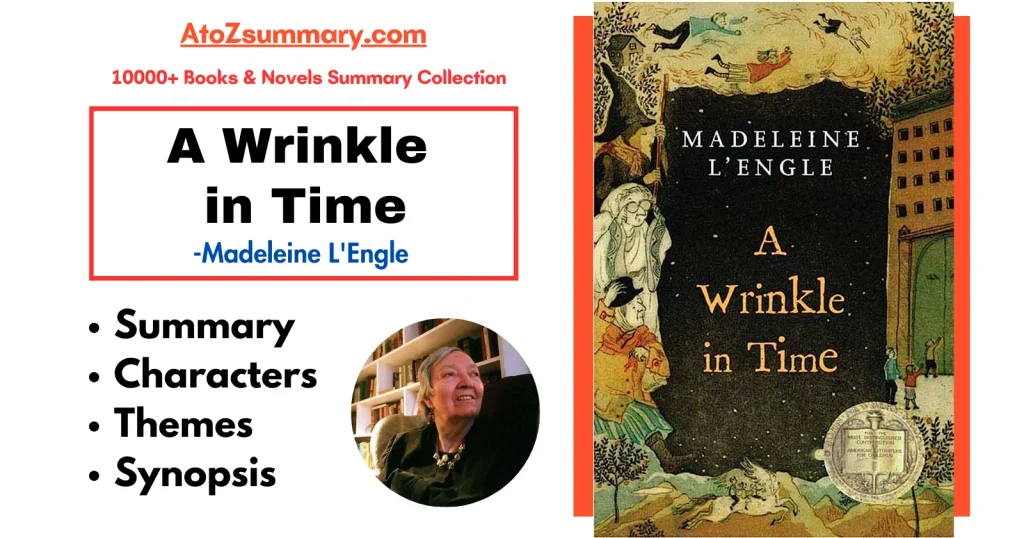Analysis
Angels in America is a two-part play written by Tony Kushner, set in the 1980s during the AIDS crisis in America. It consists of “Millennium Approaches” and “Perestroika.” The play intertwines the lives of several characters as they grapple with personal and political issues, spiritual turmoil, and the realities of the AIDS epidemic.
| itle | Angels in America |
| Author | Tony Kushner |
| Parts | “Millennium Approaches” and “Perestroika” |
| Setting | 1980s New York City during the height of the AIDS crisis |
| Themes | AIDS epidemic, identity, relationships, politics, spirituality, societal issues |
| Style | Blend of realism and surrealism, with elements of magical realism and social commentary |
| Tone | Both dramatic and darkly comedic, exploring serious topics with moments of humor |
| Reception | Highly acclaimed, Pulitzer Prize and Tony Awards winner, regarded as a modern classic |
| Cultural Impact | Considered a significant work in contemporary theater, addresses important social issues |
| Legacy | Influential in discussions about LGBTQ+ rights, AIDS awareness, and societal change |
Characters
The characters of “Angels in America” by Tony Kushner are:
- Prior Walter ➤ A young man with AIDS, who becomes a prophet and experiences angelic visions.
- Louis Ironson ➤ Prior’s partner, dealing with guilt and conflicting emotions about their relationship.
- Roy Cohn ➤ A powerful and corrupt lawyer battling AIDS, based on a real-life figure.
- Joe Pitt ➤ A closeted gay Mormon lawyer, struggling with his sexual identity and marriage.
- Harper Pitt ➤ Joe’s wife, dealing with her personal challenges and feelings of isolation.
Themes
The themes of “Angels in America” by Tony Kushner are:
- AIDS and Its Impact ➤ The play explores the devastating effects of the AIDS epidemic on individuals and society.
- Identity and Sexuality ➤ Characters grapple with their sexual identities and societal expectations.
- Spirituality and Prophecy: ➤ It intertwines religious themes through angelic visitations and the idea of prophecy.
- Power and Politics ➤ It examines the abuse of power, political corruption, and the consequences of power imbalances.
- Relationships and Connection ➤ The interconnected lives of the characters highlight the importance of relationships in shaping individual experiences and growth.
Watch Angels in America: Full Play Summary
Summary
The two disturbed couples shown in Angels in America are the Mormon lawyer Joe Pitt and his wife Harper, and “word processor” Louis Ironson and his lover Prior Walter. When Prior informs Louis during his grandmother’s burial that he has AIDS, Louis becomes terrified. He makes an effort to look after Prior but quickly finds he can’t handle the stress and anxiety. Meanwhile, Joe’s right-wing, racist mentor and friend Roy Cohn extends an opportunity to him to work for the Justice Department. However, Harper, who has a Valium addiction and has anxiety and delusions, is opposed to relocating to Washington.
The paths of the two couples soon converge: Joe finds Louis sobbing in the courtroom restroom where he works, and they develop an odd relationship partly because of Louis’s hunch that Joe is gay. In a fanciful reciprocal dream sequence, Harper and Prior also cross paths. Prior, acting on the “threshold of revelation,” tells Harper that her husband is a secret gay. When Harper approaches Joe, he disputes it but admits to having internalized his struggles.
Roy is given a different type of surprise when he finds out that he has been diagnosed with AIDS during a visit with his physician Henry. Roy, on the other hand, thunders that he has nothing in common with gay men, calling them weak and impotent, and that AIDS is a sickness specific to homosexuals, whereas he suffers from “liver cancer.” Disgusted, Henry begs him to use his influence to get an experimental AIDS medication.
Both Harper’s nightmares and Prior’s sickness worsen. Louis leaves Prior’s bedside at night to have unidentified sex in Central Park. Thankfully, Prior has a more dependable caregiver in Belize—a close friend and former drag queen. Belize is dubious when Prior tells him he has been hearing a lovely, enigmatic voice, but after he departs, we hear the voice inform Prior that she is a messenger who will soon come for him.
The days go by, and Louis and Joe become closer and more blatant in their banter about sexual things. When Joe finally calls his mother Hannah in Salt Lake City while intoxicated to confess to her that he is gay, Hannah tells him he is being stupid. Still, she decides to sell her home and go to New York to make amends. In a suspenseful and dramatic moment, Joe confides in Harper about his thoughts, to which she yells for him to go, and Louis notifies Prior that he is moving out at the same time.
One night, the spirits of two ancestors awaken the distraught Prior, telling him they have come to clear the path for the invisible messenger. As a result of these uncanny encounters and his suffering over Louis, Prior grows more and more frantic. Joe tells Roy he can’t take him up on his offer; Roy, who is also upset in his way, snaps at him and labels him a “sissy.” Then he informs Joe about his greatest accomplishment, which was to ensure Ethel Rosenberg’s execution by unlawfully interfering in her espionage trial in the 1950s. Joe finds Roy’s lack of morality shocking.
The spirit of Ethel herself manifests as Joe departs; she has come to see Roy’s final days on the planet. Part One’s climax finds Joe accompanying Louis to the park and then home for sexual activity, while Prior’s visions of the future come to pass in the form of an imposing and gorgeous Angel who bursts through his apartment’s roof, announcing, “The Great Work begins.”
Harper indulges in the idea that she is in Antarctica with her fictitious friend Mr. Lies in Part Two. However, Antarctica turns out to be Prospect Park in Brooklyn, and the cops come to get her. Joe is nowhere to be found, so Hannah rescues her and tends to her deep despair. At last, she demands that Harper accompany her to the Mormon Visitor’s Center, where she has started to assist. Belize, who works as a nurse at the hospital, receives a sicker Roy, who checks in. When Roy makes crude, racial remarks to him, Belize becomes enraged but also uncontrollably respectful and offers him insightful counsel on how to handle him.
Their relationship is never sweet, but it can also be frigid and fiery at times. But Belize shows Prior a great deal of sympathy and Prior tells him the whole tale of the Angel’s visit. Following her spectacular entrance, she presents Prior with a book full of prophecies and tells him that she needs his assistance to stop human migration, which the Angels in Heaven feel is tempting God to leave humanity. She reveals that God, energized by perpetual sexual activity, departed Heaven on the day of the 1906 earthquake in San Francisco, leaving his Angels alone and directionless ever since. The Angel believes that to buck the trend, people need to kick their addiction to change and cease moving constantly. It should come as no surprise that Prior is horrified by what she says and swears to leave her behind.
Roy promises to practice law till the day he dies, despite learning that his political rivals want to have him disbarred for a moral transgression. He offers Joe his blessing in an attempt to patch things up amicably, but not before Joe confesses that he has been living happily ever after with Louis for the last month. Shocked and furious, he insists that Joe immediately call off their gay connection.
Ethel arrives to see him suffer. Conversely, Joe’s spouse spends her days at the Mormon Visitor’s Center gazing at a diorama depicting the Mormon migration that includes a father dummy that has a striking resemblance to Joe. Prior shows in to do a study on angels, which starts a fantasy scenario when Louis and Joe show up in the diorama. After being silent for a while, the Mormon mother suddenly returns to life and departs with Harper, offering her sobering but insightful counsel on transition and loss.
When Louis expresses his desire to see Prior once more, their idyllic relationship comes to an end. Prior icily demands that he show tangible evidence of his inside bruising during their encounter. Later, Belize informs Louis of Joe’s connection to Roy, whose personal past and politics Louis finds repugnant. Joe hits Louis when their dispute gets violent as a result of Louis’s angry confrontation. Horrified, he apologizes, but they never communicate again. Nearing the end of his life, Roy is also shaken by Joe’s revelation and Ethel’s announcement of his disbarment. He tricks Ethel into performing a romantic song for him before passing away. To express gratitude (for his cache of AIDS medications) and forgiveness, Belize calls Louis to say the Kaddish, the Jewish prayer for the deceased, after his passing. The play’s emotional and moral climax, the prayer, is led by Ethel and Louis.
Hannah drives to the hospital after he had an incident at the visitor’s center. Prior wrestles the Angel there as she descends. If he is successful, he is allowed to enter Heaven and reject his prophecy. Prior tells the Angels that he wants them to bless him and grant him a longer life despite all of his suffering in Heaven, which is similar to San Francisco after the big earthquake. Although the Angels express sympathy, they are unable to stop the pandemic. He advises them to sue God for desertion if He returns. After recovering from his illness, Prior tells Louis that he loves him but that he will never be able to return. Harper bids farewell to Joe and embarks on a hopeful journey to San Francisco to start a new chapter in her life.
Four years later, in 1990, a poignant epilogue features Louis, Prior, Belize, and Hannah. Although the illness has claimed many lives, Prior declares that he plans to live on and that the “Great Work” will go on.
FAQs
What is the story behind Angels in America?
Angels in America is a play about a gay man with AIDS, a closeted gay lawyer, and their loved ones struggling to survive and find meaning in 1980s America.
Why is it called Angels in America?
Because the play is about angels who visit America.
Who is the villain in Angels in America?
The villain in Angels in America is Roy Cohn, a ruthless and homophobic lawyer.
What happens to Harper in Angels in America?
Harper in Angels in America leaves her husband and moves to San Francisco to start a new life.
What happened to Joe Pitt in Angels in America?
Joe Pitt struggles to reconcile his religious and political beliefs with his sexuality, and is left alone at the end of the play.
What is the relationship between Joe and Roy in Angels in America?
Joe and Roy are a mentor and mentee with a complex and often fraught relationship.
What is the irony in Angels in America?
The irony in Angels in America is that the characters are struggling with their own identities while the world around them is also struggling with its identity.
What is the religion in Angels in America?
Mormonism and Judaism are the religions in Angels in America
Why is Angels in America an important play?
Because it is a powerful and moving story about people struggling with love, loss, and identity in the midst of the AIDS crisis.
What is the climax of Angels in America?
The climax of Angels in America is when the Angel of America appears to Prior Walter and tells him that he is a prophet and must go on a journey to save the world.











